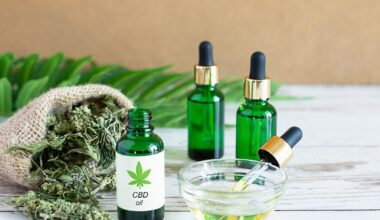A survey by Colorado CBD company Joy Organics conducted by YouGov found 18 percent of respondents were “very concerned” with CBD product safety, with 30 percent saying they were “somewhat concerned” and 26 percent “not very concerned;” 26 percent of those polled said they were “not at all concerned.”
However, a vast majority of those polled – 81 percent – said they didn’t currently use CBD products. Just 11 percent said they currently use CBD tinctures, while 8 percent said they vaped CBD, and 4 percent used other, unnamed, products.
The primary concern among those polled (31 percent) was about contaminants such as pesticides and heavy metals in the products, while 29 percent were worried about harmful added ingredients, such as vape flavors. Another 23 percent said they were worried about the accidental consumption of synthetic CBD, and 14 percent feared CBD could be damaging to the body.
Darcie Moran, director of quality assurance at Joy Organics, said the poll shows that “many consumers simply don’t know what they’re putting in their body or which brands to trust.” She warned that consumers can best identify high quality brands by checking ingredient lists and looking out for products that make curative claims, which are not compliant with Food and Drug Administration rules.
“The bottom line is this: if a company does not test through third-party laboratories and publish the results from each batch, you cannot know what their products contain. Hemp is a known bioaccumulator, meaning it has a special ability to absorb contaminants in the soil, contaminants that may later end up in hemp-derived products.” – Moran, in a statement
The company suggests that many consumers who vape CBD products might be taking a step back from use with the recent spate of pulmonary illnesses believed to be related to vaping. Most of those illnesses are believed to be linked to counterfeit vape products in illicit markets.
Medical Disclaimer:
The information provided in these blog posts is intended for general informational and educational purposes only. It is not a substitute for professional medical advice, diagnosis, or treatment. Always seek the advice of your physician or other qualified healthcare provider with any questions you may have regarding a medical condition. The use of any information provided in these blog posts is solely at your own risk. The authors and the website do not recommend or endorse any specific products, treatments, or procedures mentioned. Reliance on any information in these blog posts is solely at your own discretion.






